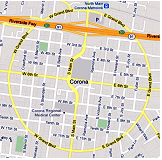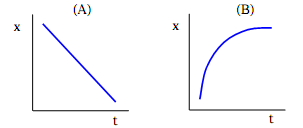Reference no: EM13803158
1) Convert the following using your unit conversion sheet. For your answers, use correct scientific notation when appropriate.
a) 75 miles/hour to meters/second
b) 40 kilometers/hour to yards/minute
c) your age (in years only) into seconds
d) 1.8 m3 to ins
e) 235 fm to meters
2) Do the following calculus operations ...
a) y = x3 + 4x - 7, find dy/dx
b) x = 1/4 t2 - t + 3, find dx/dt
c) S = b3/a- fb, find the derivative of "S" with respect to "b"
d) v = 4t2 -3t2 + 6, integrate "v" with respect to "t", showing the proper notation.
3) When lightning and thunder occur in movies they are typically shown to happen at the same time. (In case you don't know ... thunder is the sound that lightning makes.) Let's say you are standing 3 miles from a lightning strike.
a) Given that the average speed of sound is 342 m/s, calculate the time it takes for you to hear the thunder.
b) Given that the average speed of light is 300,000,000 m/s, calculate the time it takes for you to see the lightning.
c) So, what is wrong with the way lightning is presented in movies? In what situation will you hear the thunder and see the lightning at the same time?
4) You are late for class so you are driving at a constant velocity of 90 mi/hr north on the 57. After driving for 6 minutes you are at Mile Marker #13. Assuming that the mile markers are increasing in number as you drive, at what mile marker were you located at the beginning of the 6 minutes?
5) You are preparing for your next 1/2 marathon by running around Grant Blvd. in Corona. This road is a perfect circle with a 1 mile diameter. You begin your run at the westernmost point of the road. It takes you 4.35 min to get to the easternmost point.

(a) Calculate your average speed for this part of your run.
(b) Calculate your average velocity for this part of your run. You get a cramp in your leg and walk back to your starting point at 6 ft/s. (c) What is your average speed for your round trip?
(d) What is your average velocity for the round trip?
6) State the type of VELOCITY for graphs (a) and (b). Tell whether; Increasing, Decreasing, Constant, or Zero; and Positive or Negative.

7) Draw the velocity graphs for the following position graphs.
